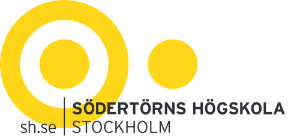Karlsson, Rikard
Mittuniversitetet, Fakulteten för humanvetenskap, Institutionen för ekonomi, geografi, juridik och turism.(RCR)2020 (Svenska)
Ingår i: Förvaltningsrättslig Tidskrift, ISSN 0015-8585, nr 1, s. 51-80
Artikel i tidskrift (Refereegranskat) Published
Abstract [sv]
Den ökade digitaliseringen av samhället påverkar även den offentliga förvaltningen. Syftet med digitaliseringen av offentlig sektor är inte sällan att göra den mer tillgänglig och effektiv, till exempel genom att öka graden av automation vid ärendehandläggning och beslutsfattande. I syfte att effektivisera en ärendeprocess kan en myndighet insamla uppgifter från andra myndigheter och enskilda och på grundval av dessa uppgifter fatta automatiserade beslut. Vid automatiserade beslut tar ingen enskild befattningshavare aktivt del i beslutsfattandet. Ett automatiserat beslut kan föregås av profilering. Profilering skulle kunna beskrivas som ett förfarande som bygger på en serie statistiska slutsatser. Profilering används ofta för att göra förutsägelser om personer, genom att med hjälp av uppgifter från olika källor sluta sig till något om en enskild person grundat på statistiskt likartade kvaliteter hos andra personer. Automatiserat beslutsfattande, med eller utan profilering, kommer med all sannolikhet att få en ökad betydelse inom den offentliga förvaltningen. Syftet med denna artikel är att utreda och analysera de rättsliga förutsättningarna för statliga förvaltningsmyndigheter att fatta automatiserade beslut som inbegriper profilering. En fråga som diskuteras i artikeln är huruvida förvaltningslagen (2017:900) lever upp till dataskyddsförordningens krav på lämpliga skyddsåtgärder.
Ort, förlag, år, upplaga, sidor
Stockholm, 2020. nr 1, s. 51-80
Nyckelord [sv]
Digitalisering, automatiserade beslut, profilering, AI, dataskyddsförordningen, GDPR, förvaltningsrätt, artikel 22
Nationell ämneskategori
Juridik och samhälle
Identifikatorer
URN: urn:nbn:se:miun:diva-38507OAI: oai:DiVA.org:miun-38507DiVA, id: diva2:1396182Tillgänglig från: 2020-02-25 Skapad: 2020-02-25 Senast uppdaterad: 2020-03-13Bibliografiskt granskad

